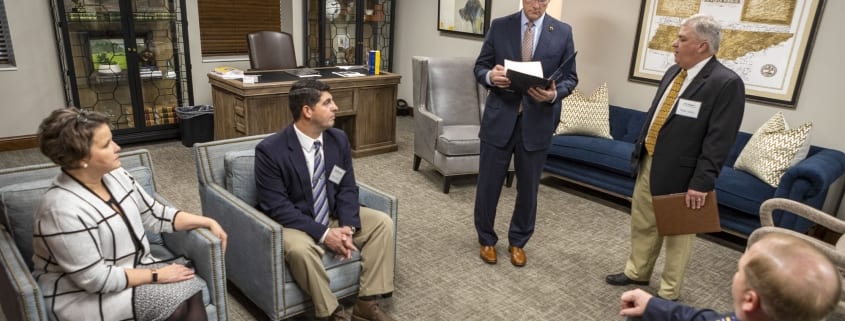Electric co-ops advocate for lineworker safety during visits with Nashville lawmakers
NASHVILLE – More than 200 electric co-op leaders from across Tennessee were in Nashville on Tuesday, Feb. 4, asking for commonsense rules to protect the state’s electric lineworkers. Over 100 individual meetings with legislators were scheduled during the Tennessee Electric Cooperative Association’s 2020 Legislative Conference.
When not installed properly, generation sources such as solar panels, wind turbines and gas generators that feed power to the grid can pose a real threat to the safety of lineworkers, first responders and the general public. Co-ops asked lawmakers to support SB 1991 and HB 1923, legislation that would require property owners installing a generation source to notify their local utility, comply with basic electric safety codes and install a switch that would allow lineworkers and first responders to disconnect the generation source in an emergency. Tennessee is one of only three states that does not have similar requirements in place.
“The interest of safety demands that any interconnected generation be properly installed,” says Kevin Murphy, president of Southwest Tennessee Electric Membership Corporation and chairman of the TECA board of trustees. “This legislation is a simple and practical effort that will go a long way to protect lineworkers, first responders and the general public.”
In addition to the lineworker safety legislation, co-ops also discussed other important topics.
Lawmakers were asked to support legislation that would allow certain utility-owned vehicles to display the Powering Tennessee specialty license plate that was introduced by the state in 2019. Proceeds from the plates support the Tennessee Lineworker Lifeline Fund, a nonprofit organization established to support lineworkers and their families.
Co-op representatives also shared information on broadband projects and encouraged lawmakers to support additional funding for rural broadband expansion.
“Every day, legislators make decisions that can impact the important work we do,” said David Callis, executive vice president and general manager of the Tennessee Electric Cooperative Association. “Visits like these provide us with valuable opportunities to educate lawmakers about co-ops and our communities. We appreciate co-op consumer-members and employees who take time away from family and work to meet with their elected officials. They help us tell the co-op story.”




